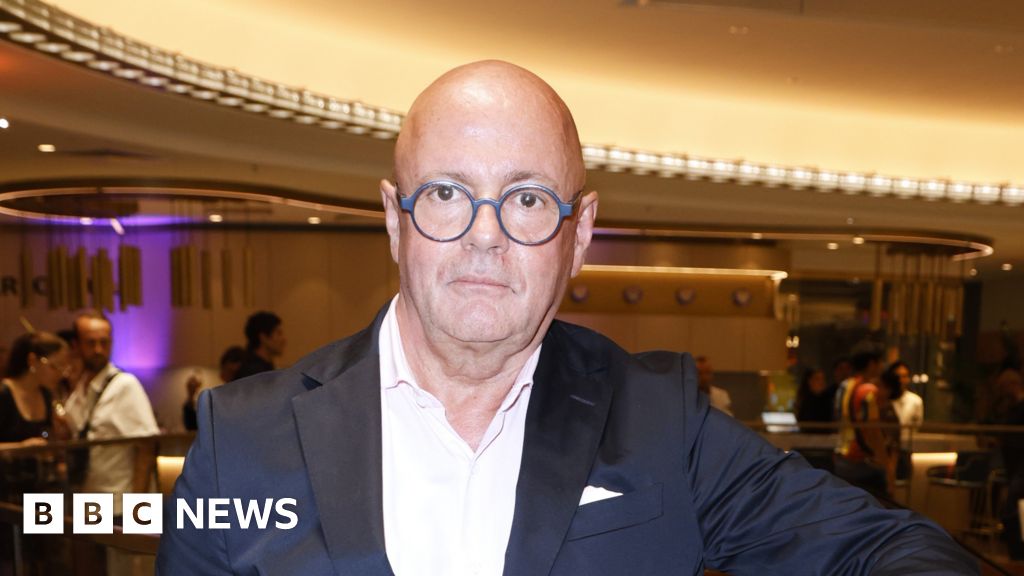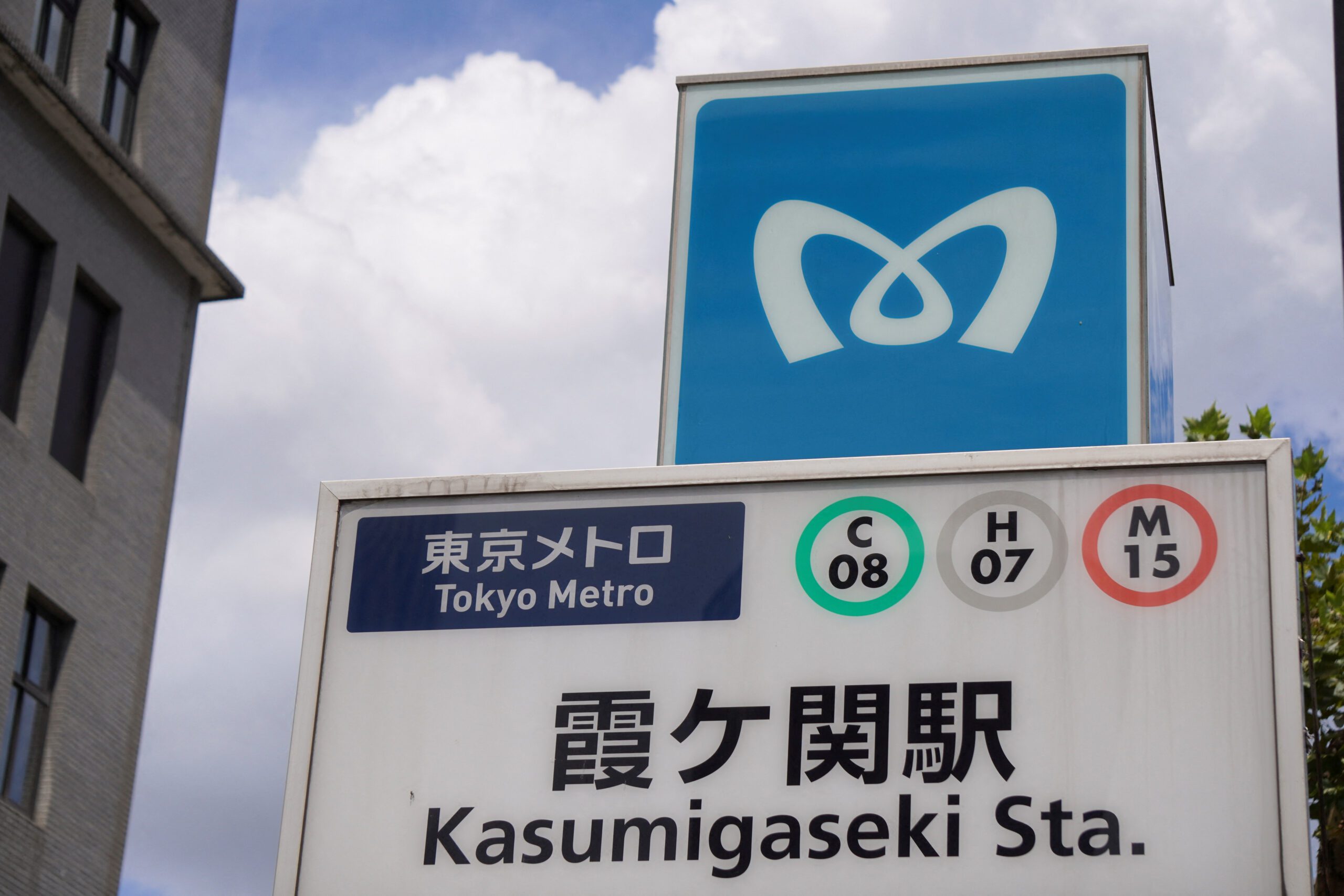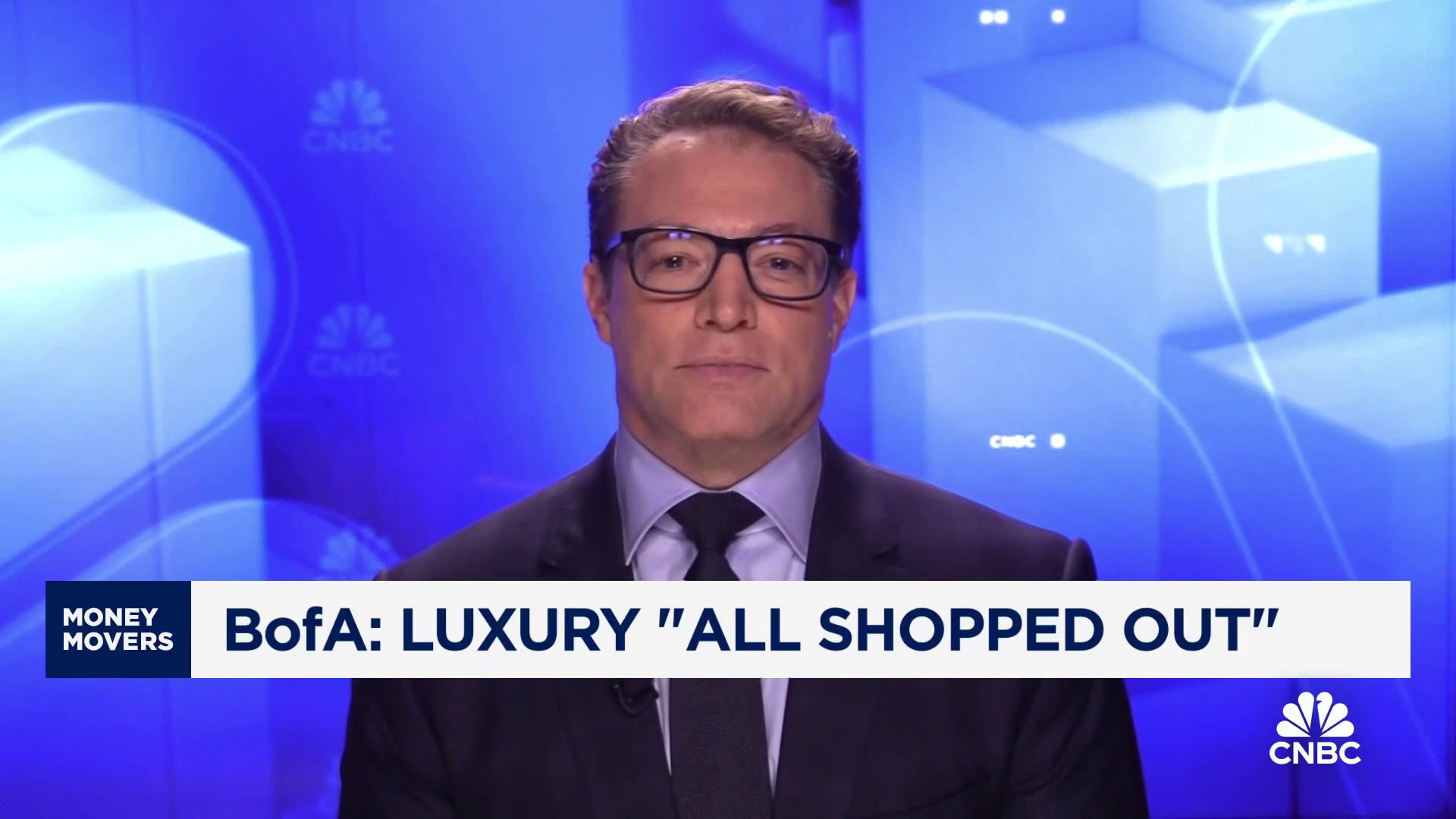Reuters exclusively reported that Japan’s national and Tokyo governments are seeking a 700 billion yen ($4.7 billion) valuation for Tokyo Metro as they prepare to list the subway operator as early as October-end, in what would be the nation’s biggest IPO in roughly six years. The two governments, which own 100% of Tokyo Metro, plan to arrange a meeting of brokerages within a week for a briefing on the IPO and expect to receive approval for the listing from the Tokyo Stock Exchange as soon as mid-September, the sources said.
Business
Selfridges boss denies knowledge of Fayed allegations

Andre Maeder, the chief executive of Selfridges, has denied knowing about Mohamed Al Fayed’s alleged sexual assaults and rapes during the six years he worked at Harrods.
He said he was “horrified” to watch the documentary about Fayed broadcast by the BBC last week, “but never saw or heard anything” about this “abhorrent” behaviour.
The Swiss national joined Harrods in 1995 and was appointed to the board as chief retail and merchandising officer in 1996. He left in 2002.
He is one of a number of former directors of Harrods under Fayed who have senior roles in business today.
The BBC has heard testimony from more than 20 female ex-employees of Harrods who say the billionaire, who died last year aged 94, sexually assaulted or raped them. Dozens more women have been in touch since the programme aired.
Mr Maeder said in a statement: “I was horrified watching the recent BBC documentary, and am truly shocked by the very serious and appalling allegations.
He said he “never saw or heard anything which suggested this abhorrent behaviour was going on. My thoughts are very much with the victims.”
The Selfridges Group, best known for its famous store on London’s Oxford Street, also owns two shops in Manchester, one in Birmingham, and chains of stores in the Netherlands and Ireland.
It is owned by the Bangkok-based Central Group, which acquired it in 2021 in a deal worth £4bn.
Mr Maeder is also president of the world department store trade association, the IDSG. Before joining Selfridges he was chief executive of the German department store chain KaDeWe, which is now also owned by Central Group.
Business
Japan, Tokyo governments target $4.7 bln valuation for Tokyo Metro in IPO

Business & FinanceEconomy
19 August 2024, 8:25 pm 1 minute
Market Impact
With half the company to be sold, the initial public offering could raise 350 billion yen at that valuation, which would exceed the size of Kokusai Electric’s IPO last year and become the largest since SoftBank Group listed its wireless unit in 2018.
Article Tags
Topics of Interest: Business & FinanceEconomy
Type: Reuters Best
Sectors: Business & FinanceEconomy & Policy
Regions: Asia
Countries: Japan
Win Types: Exclusivity
Story Types: Exclusive / Scoop
Media Types: Text
Customer Impact: Significant National Story
Money
IPAW 2024 kicks off with IP seminar for advisers


Income Protection Awareness Week (IPAW 2024) kicked off today (23 September) with a seminar for advisers exploring the current income protection (IP) market.
The awareness week is being organised by the Income Protection Task Force (IPTF) to raise the profile and grow sales of IP products.
The week will comprise a series of online keynotes, panel debates, case studies and presentations and will tackle various themes across income protection.
Today’s session looked at the case for income protection and what advisers are seeing in the market and in client conversations.
It also looked at how advisers include IP in their advice process and the impact that consumer duty has had on adviser behaviour.
Jo Miller, co-chair, IPTF, said the IP market has seen a rise in sales, with a record number of sales on advice.
However, she urged the sector to keep up the momentum as more work needed to be done.
The adviser panel – consisiting of Mike Douglas, protection specialist, Woodside Financial Services, Nina Brown, protection specialist at Pam Brown Mortgages, and Hannah Murray, financial adviser, St. James’s Place Protection Planning – expressed similar sentiments.
For his part, Douglas urged advisers to make the IP advice process simple by explaining the benefits and pitfalls of not having IP cover.
Meanwhile, research from protection and employee benefits provider MetLife UK has found that while one in five (20%) consumers see the benefit of financial protection, 12% don’t understand the difference between the various offerings.
The study, published today, found one in ten (9%) customers admitted they only thought about financial protection once it was too late and they needed to claim.
MetLife said IPAW provides the chance for advisers to talk to clients and review what protection they do and don’t have in place.
Business
Some investors demand change at LVMH after probe into Dior contractors

Business & Finance
23 July 2024, 9:11 am 1 minute
Reuters exclusively reported that Europe’s top asset manager Amundi and other LVMH investors want the $370 billion luxury behemoth to take more aggressive steps to monitor its suppliers’ treatment of workers after Italian prosecutors disclosed alleged sweatshop-like conditions at subcontractors for high-end brand Dior.
Market Impact
The investigation into suppliers for LVMH’s second-largest fashion label, which Reuters revealed on June 11, has shone a spotlight on potential worker exploitation in the $1.6 trillion global luxury goods industry.
Article Tags
Topics of Interest: Business & Finance
Type: Reuters Best
Sectors: Business & Finance
Regions: Europe
Win Types: Exclusivity
Story Types: Exclusive / Scoop
Media Types: Text
Customer Impact: Important Regional Story
Business
California accuses Exxon of misleading public on plastic recycling
Unlock the Editor’s Digest for free
Roula Khalaf, Editor of the FT, selects her favourite stories in this weekly newsletter.
California has filed a lawsuit against ExxonMobil alleging it falsely promoted the recyclability of plastic, becoming the first US state seeking to hold an oil major accountable for plastic pollution.
The lawsuit alleges Exxon, one of the world’s largest producers of plastic, deceived the public for half a century about the sustainability of its plastic products. The lawsuit seeks damages from the oil group for harms inflicted from plastic production.
“For decades, ExxonMobil has been deceiving the public to convince us that plastic recycling could solve the plastic waste and pollution crisis when they clearly knew this wasn’t possible,” said California attorney-general Rob Bonta in a statement. “ExxonMobil lied to further its record-breaking profits at the expense of our planet and possibly jeopardising our health.”
Exxon did not immediately respond to a request for comment.
The allegations arrive as plastics play a growing role in supporting oil demand and as the UN prepares to broker in late November the world’s first binding agreement to cut plastics pollution in South Korea, a deal that has been likened to the 2015 Paris climate agreement.
Global consumption of plastic, a primary driver of petrochemicals demand, is expected to triple by 2060, according to the OECD, reaching 1.3bn tonnes. China was the largest producer of plastics last year, surpassing North America by a slim margin, according to S&P Global Commodity Insights.
The International Energy Agency cites the petrochemicals sector as the “single largest contributor” to oil demand growth for the next four years as the electrification of power and transport sectors curb the global thirst for crude. The plastics industry is expected to make up 10 per cent of global emissions by mid-century, up from 5 per cent in 2019, according to a report from the Lawrence Berkeley National Laboratory.
California’s lawsuit against Exxon follows the investigation it launched into the fossil fuel and petrochemicals sectors and their role in plastic pollution in 2022. A group of non-profit organisations including Sierra Club and Surfrider Foundation filed a similar lawsuit on Monday targeting Exxon for misleading claims about its plastics business.
State and local governments are increasing efforts to hold companies accountable for plastic waste. Earlier this year, New York attorney-general Letitia James sued PepsiCo, demanding the food and drinks company reduce its plastic pollution and pay for damages.
Developing countries, environmentalists and businesses have called for a limit on plastic production to be included in the final UN plastics treaty expected by the end of the year, arguing that relying on waste management solutions such as recycling were inadequate.
Karen McKee, head of Exxon’s product solutions business, told the Financial Times earlier this year that a limit on production would not solve the pollution problem and that UN negotiators needed to be “open-minded” about solutions.
Exxon produced 11.2mn metric tonnes of polyethylene last year and operates a chemical recycling plant for plastic in Baytown, Texas.
About 10 per cent of all plastic is recycled, according to the OECD, which estimates investment in recycling must reach $1tn by 2040, up from less than $20bn today.
Money
Bank of America: Luxury consumer is 'all tapped out'

CNBC’s Robert Frank reports on news from luxury shoppers.
Business
First Quantum plans maintenance for Panama copper mine amid protests

Business & FinanceEnergyEnvironment
20 November 2023, 3:09 pm 1 minute
Reuters exclusively reported that Canada’s First Quantum Minerals was considering putting its key Panama copper miner on care and maintenance from Nov. 23, effectively shutting production at a mine that accounts for about 1% of global output. Citing sources familiar with the matter, Reuters reported that the move follows protests that blocked coal from reaching First Quantum’s plant. Supply concerns at First Quantum’s Panama contributed to copper prices jumping to two-month highs traders said while First Quantum shares extended fall to drop as much as 5.7% on the news.
Market Impact
Supply concerns at First Quantum’s Panama contributed to copper prices jumping to two-month highs traders said while First Quantum shares extended fall to drop as much as 5.7% on the news.
Article Tags
Topics of Interest: Business & FinanceEnergyEnvironment
Type: Reuters Best
Sectors: Business & FinanceCommodities & Energy
Regions: North America
Win Types: Exclusivity
Story Types: Exclusive / Scoop
Media Types: Text
Customer Impact: Important Regional Story
-

 News5 days ago
News5 days agoYou’re a Hypocrite, And So Am I
-

 Sport4 days ago
Sport4 days agoJoshua vs Dubois: Chris Eubank Jr says ‘AJ’ could beat Tyson Fury and any other heavyweight in the world
-

 Science & Environment5 days ago
Science & Environment5 days agoHow to unsnarl a tangle of threads, according to physics
-

 Science & Environment4 days ago
Science & Environment4 days ago‘Running of the bulls’ festival crowds move like charged particles
-

 Technology5 days ago
Technology5 days agoWould-be reality TV contestants ‘not looking real’
-

 News1 day ago
News1 day agoOur millionaire neighbour blocks us from using public footpath & screams at us in street.. it’s like living in a WARZONE – WordupNews
-

 CryptoCurrency4 days ago
CryptoCurrency4 days agoEthereum is a 'contrarian bet' into 2025, says Bitwise exec
-

 CryptoCurrency4 days ago
CryptoCurrency4 days agoDZ Bank partners with Boerse Stuttgart for crypto trading
-

 Science & Environment5 days ago
Science & Environment5 days agoWhy this is a golden age for life to thrive across the universe
-

 Science & Environment4 days ago
Science & Environment4 days agoQuantum ‘supersolid’ matter stirred using magnets
-

 Science & Environment4 days ago
Science & Environment4 days agoSunlight-trapping device can generate temperatures over 1000°C
-

 Science & Environment5 days ago
Science & Environment5 days agoLiquid crystals could improve quantum communication devices
-

 CryptoCurrency4 days ago
CryptoCurrency4 days agoBitcoin miners steamrolled after electricity thefts, exchange ‘closure’ scam: Asia Express
-

 CryptoCurrency4 days ago
CryptoCurrency4 days agoDorsey’s ‘marketplace of algorithms’ could fix social media… so why hasn’t it?
-

 CryptoCurrency4 days ago
CryptoCurrency4 days agoLow users, sex predators kill Korean metaverses, 3AC sues Terra: Asia Express
-

 CryptoCurrency4 days ago
CryptoCurrency4 days agoBitcoin bulls target $64K BTC price hurdle as US stocks eye new record
-
Travel23 hours ago
Where Retro Glamour Meets Modern Chic in Athens, Greece
-

 News4 days ago
News4 days agoIsrael strikes Lebanese targets as Hizbollah chief warns of ‘red lines’ crossed
-

 Science & Environment4 days ago
Science & Environment4 days agoHyperelastic gel is one of the stretchiest materials known to science
-

 Science & Environment5 days ago
Science & Environment5 days agoMaxwell’s demon charges quantum batteries inside of a quantum computer
-

 Science & Environment4 days ago
Science & Environment4 days agoQuantum forces used to automatically assemble tiny device
-

 News4 days ago
News4 days agoBrian Tyree Henry on voicing young Megatron, his love for villain roles
-

 Health & fitness5 days ago
Health & fitness5 days agoThe secret to a six pack – and how to keep your washboard abs in 2022
-

 Science & Environment5 days ago
Science & Environment5 days agoHow to wrap your mind around the real multiverse
-

 Science & Environment4 days ago
Science & Environment4 days agoPhysicists are grappling with their own reproducibility crisis
-

 Science & Environment4 days ago
Science & Environment4 days agoNuclear fusion experiment overcomes two key operating hurdles
-

 CryptoCurrency4 days ago
CryptoCurrency4 days agoCardano founder to meet Argentina president Javier Milei
-

 CryptoCurrency4 days ago
CryptoCurrency4 days agoRedStone integrates first oracle price feeds on TON blockchain
-

 CryptoCurrency4 days ago
CryptoCurrency4 days agoSEC asks court for four months to produce documents for Coinbase
-

 CryptoCurrency4 days ago
CryptoCurrency4 days agoVitalik tells Ethereum L2s ‘Stage 1 or GTFO’ — Who makes the cut?
-

 CryptoCurrency4 days ago
CryptoCurrency4 days agoBlockdaemon mulls 2026 IPO: Report
-

 Science & Environment1 day ago
Science & Environment1 day agoMeet the world's first female male model | 7.30
-

 Sport4 days ago
Sport4 days agoUFC Edmonton fight card revealed, including Brandon Moreno vs. Amir Albazi headliner
-

 Technology4 days ago
Technology4 days agoiPhone 15 Pro Max Camera Review: Depth and Reach
-

 Science & Environment4 days ago
Science & Environment4 days agoHow one theory ties together everything we know about the universe
-

 Science & Environment5 days ago
Science & Environment5 days agoITER: Is the world’s biggest fusion experiment dead after new delay to 2035?
-

 CryptoCurrency4 days ago
CryptoCurrency4 days agoJourneys: Robby Yung on Animoca’s Web3 investments, TON and the Mocaverse
-

 CryptoCurrency4 days ago
CryptoCurrency4 days ago$12.1M fraud suspect with ‘new face’ arrested, crypto scam boiler rooms busted: Asia Express
-

 CryptoCurrency4 days ago
CryptoCurrency4 days agoCertiK Ventures discloses $45M investment plan to boost Web3
-

 CryptoCurrency4 days ago
CryptoCurrency4 days agoVonMises bought 60 CryptoPunks in a month before the price spiked: NFT Collector
-

 CryptoCurrency4 days ago
CryptoCurrency4 days ago‘Silly’ to shade Ethereum, the ‘Microsoft of blockchains’ — Bitwise exec
-

 CryptoCurrency4 days ago
CryptoCurrency4 days ago‘No matter how bad it gets, there’s a lot going on with NFTs’: 24 Hours of Art, NFT Creator
-
Business4 days ago
How Labour donor’s largesse tarnished government’s squeaky clean image
-

 CryptoCurrency4 days ago
CryptoCurrency4 days agoCoinbase’s cbBTC surges to third-largest wrapped BTC token in just one week
-

 News4 days ago
News4 days agoChurch same-sex split affecting bishop appointments
-

 Politics6 days ago
Politics6 days agoTrump says he will meet with Indian Prime Minister Narendra Modi next week
-

 Politics4 days ago
Politics4 days agoLabour MP urges UK government to nationalise Grangemouth refinery
-

 Science & Environment5 days ago
Science & Environment5 days agoTime travel sci-fi novel is a rip-roaringly good thought experiment
-

 Science & Environment5 days ago
Science & Environment5 days agoLaser helps turn an electron into a coil of mass and charge
-

 CryptoCurrency4 days ago
CryptoCurrency4 days ago2 auditors miss $27M Penpie flaw, Pythia’s ‘claim rewards’ bug: Crypto-Sec
-

 CryptoCurrency4 days ago
CryptoCurrency4 days agoHelp! My parents are addicted to Pi Network crypto tapper
-

 CryptoCurrency4 days ago
CryptoCurrency4 days agoCrypto scammers orchestrate massive hack on X but barely made $8K
-

 Science & Environment4 days ago
Science & Environment4 days agoWhy we need to invoke philosophy to judge bizarre concepts in science
-

 CryptoCurrency4 days ago
CryptoCurrency4 days agoSEC sues ‘fake’ crypto exchanges in first action on pig butchering scams
-

 CryptoCurrency4 days ago
CryptoCurrency4 days agoElon Musk is worth 100K followers: Yat Siu, X Hall of Flame
-

 CryptoCurrency4 days ago
CryptoCurrency4 days agoBitcoin price hits $62.6K as Fed 'crisis' move sparks US stocks warning
-

 CryptoCurrency4 days ago
CryptoCurrency4 days agoCZ and Binance face new lawsuit, RFK Jr suspends campaign, and more: Hodler’s Digest Aug. 18 – 24
-

 CryptoCurrency4 days ago
CryptoCurrency4 days agoTelegram bot Banana Gun’s users drained of over $1.9M
-

 CryptoCurrency4 days ago
CryptoCurrency4 days agoEthereum falls to new 42-month low vs. Bitcoin — Bottom or more pain ahead?
-

 CryptoCurrency4 days ago
CryptoCurrency4 days agoETH falls 6% amid Trump assassination attempt, looming rate cuts, ‘FUD’ wave
-
Politics4 days ago
‘Appalling’ rows over Sue Gray must stop, senior ministers say | Sue Gray
-

 CryptoCurrency4 days ago
CryptoCurrency4 days agoBitcoin options markets reduce risk hedges — Are new range highs in sight?
-

 News2 days ago
News2 days agoBangladesh Holds the World Accountable to Secure Climate Justice
-

 News4 days ago
News4 days agoPolice chief says Daniel Greenwood 'used rank to pursue junior officer'
-

 Business6 days ago
Business6 days agoGuardian in talks to sell world’s oldest Sunday paper
-

 Science & Environment4 days ago
Science & Environment4 days agoHow to wrap your head around the most mind-bending theories of reality
-

 Technology6 days ago
Technology6 days agoCan technology fix the ‘broken’ concert ticketing system?
-

 News7 days ago
News7 days agoDid the Pandemic Break Our Brains?
-

 Politics6 days ago
Politics6 days agoTrump Media breached ARC Global share agreement, judge rules
-

 Science & Environment4 days ago
Science & Environment4 days agoA new kind of experiment at the Large Hadron Collider could unravel quantum reality
-

 Fashion Models4 days ago
Fashion Models4 days agoMixte
-

 Science & Environment4 days ago
Science & Environment4 days agoHow Peter Higgs revealed the forces that hold the universe together
-

 Science & Environment5 days ago
Science & Environment5 days agoNerve fibres in the brain could generate quantum entanglement
-
Business6 days ago
Glasgow to host scaled-back Commonwealth Games in 2026
-

 Science & Environment5 days ago
Science & Environment5 days agoQuantum time travel: The experiment to ‘send a particle into the past’
-

 CryptoCurrency4 days ago
CryptoCurrency4 days agoReal-world asset tokenization is the crypto killer app — Polygon exec
-

 CryptoCurrency4 days ago
CryptoCurrency4 days agoDecentraland X account hacked, phishing scam targets MANA airdrop
-

 CryptoCurrency4 days ago
CryptoCurrency4 days agoBeat crypto airdrop bots, Illuvium’s new features coming, PGA Tour Rise: Web3 Gamer
-

 CryptoCurrency4 days ago
CryptoCurrency4 days agoMemecoins not the ‘right move’ for celebs, but DApps might be — Skale Labs CMO
-
Business4 days ago
Thames Water seeks extension on debt terms to avoid renationalisation
-
Politics4 days ago
The Guardian view on 10 Downing Street: Labour risks losing the plot | Editorial
-

 Politics4 days ago
Politics4 days agoI’m in control, says Keir Starmer after Sue Gray pay leaks
-
Business4 days ago
UK hospitals with potentially dangerous concrete to be redeveloped
-
Politics4 days ago
‘Hundreds’ of prisoners freed early in England and Wales not fitted with tags | Prisons and probation
-

 News4 days ago
News4 days ago“Beast Games” contestants sue MrBeast’s production company over “chronic mistreatment”
-

 News4 days ago
News4 days agoSean “Diddy” Combs denied bail again in federal sex trafficking case
-

 News4 days ago
News4 days agoSean “Diddy” Combs denied bail again in federal sex trafficking case in New York
-

 News4 days ago
News4 days agoBrian Tyree Henry on voicing young Megatron, his love for villain roles
-

 Money3 days ago
Money3 days agoFamily offices are the most bullish they’ve been in years, survey says
-

 Money3 days ago
Money3 days agoPodcast: The art of putting things right
-

 Money3 days ago
Money3 days agoWeekend Essay: The art of putting things right
-

 Money3 days ago
Money3 days agoHere's what the top 0.01% pay in taxes
-

 News1 day ago
News1 day agoWhy Is Everyone Excited About These Smart Insoles?
-

 News23 hours ago
News23 hours agoFour dead & 18 injured in horror mass shooting with victims ‘caught in crossfire’ as cops hunt multiple gunmen
-

 Technology4 days ago
Technology4 days agoFivetran targets data security by adding Hybrid Deployment
-

 Science & Environment5 days ago
Science & Environment5 days agoElon Musk’s SpaceX contracted to destroy retired space station
-
Politics6 days ago
Starmer ally Hollie Ridley appointed as Labour general secretary | Labour
-

 Money5 days ago
Money5 days agoWhat estate agents get up to in your home – and how they’re being caught
-

 Technology6 days ago
Technology6 days ago‘The dark web in your pocket’
-
News4 days ago
Freed Between the Lines: Banned Books Week

You must be logged in to post a comment Login